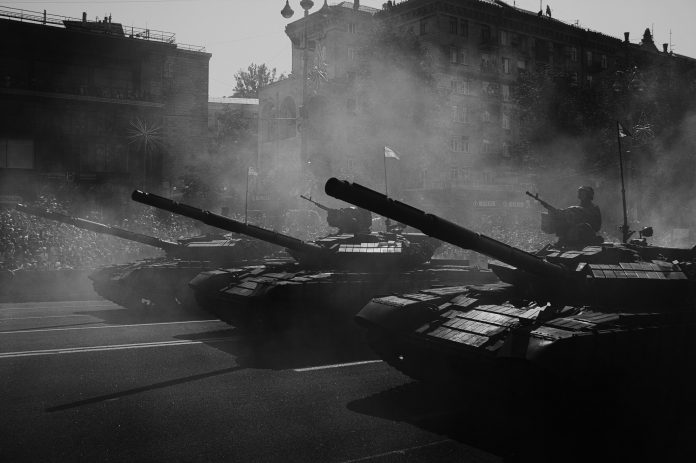Russia’s war against Ukraine has strengthened public support for the EU, the EP Spring Eurobarometer survey published today finds.
Almost two thirds (65%) of Europeans see EU membership as a good thing. This is the highest result since 2007, when it was at 58%. EU membership is seen as ‘a good thing’ by a relative majority of citizens in all countries except Greece and Slovakia, where more respondents view it as ‘neither a good nor a bad thing’. Compared to Parliament’s last Parlemeter survey conducted at the end of 2021, results have increased significantly in most countries, particularly in Lithuania (+20 pp), Malta (+12 pp) and Estonia (+9 pp).
52% of Europeans today have a positive image of the EU, against 12% negative. This result is an increase of 3 points for positive image since November-December 2021 and, at the same time equals the best result measured by European Parliament’s surveys since 2007. National results for a positive EU image range from 76% in Ireland to 32% in Greece.
European Parliament President Roberta Metsola, welcoming the results of the survey, said: “With war returning to our continent, Europeans feel reassured to be part of the European Union. European citizens are deeply attached to freedom, are ready to defend our values, and are increasingly realising that democracy can no longer be taken for granted.”
Recent events have also shaped the image Europeans have of other major actors on the international scene. Russia is seen positively only by 10% of respondents, down from 30% in 2018 when this question was last asked. China returns the second lowest ranking with 22% (-14 pp). By contrast, Europeans have a more positive image of the UK (65%, +1 pp) followed by the USA with 58% (+13 pp).
Most citizens perceive the war in Ukraine as fundamental change: 61% of Europeans are not confident that their life will continue unchanged. Only around a third of respondents (37%) believe it would. A survey published last week by the European Commission shows eight in ten respondents (80%) agreeing with imposing economic sanctions on the Russian government as well as Russian companies and individuals. A majority of citizens in 22 Member States is satisfied with the EU’s response to the Russian invasion of Ukraine.
Inflation and the cost of living were already rising since long before Russia invaded Ukraine, further magnifying the problem, and now four in ten Europeans say they are already experiencing an impact on their standard of living (40%). As clear sign of European resilience and unity, 59% of Europeans see the defence of common European values such as freedom and democracy as a priority – even if that were to affect prices and the cost of living.
The increasing economic worries are also reflected in the political priorities citizens want the European Parliament to focus on: The fight against poverty and social exclusion is mentioned first (38%), followed by public health (35%), which has dropped significantly by 7 pp over the past six months, and democracy and rule of law (32%), which in turn was subject to a significant increase by 7 pp.
The perception of the war and what it means for the European Union becomes also visible in the citizens’ core values they want the European Parliament to defend as a matter of priority: Democracy again tops the list, with an increase of six points compared to autumn 2021 (38%, +6pp). The protection of human rights in the EU and worldwide as well as the freedom of speech and thought both follow on 27%.
Background
The European Parliament’s spring 2022 Eurobarometer was carried out between 19 April and 16 May 2022 among 26.578 respondents in the 27 EU Member States. The survey was conducted face-to-face and completed with online interviews where necessary. EU results were weighted according to the size of the population in each country.

